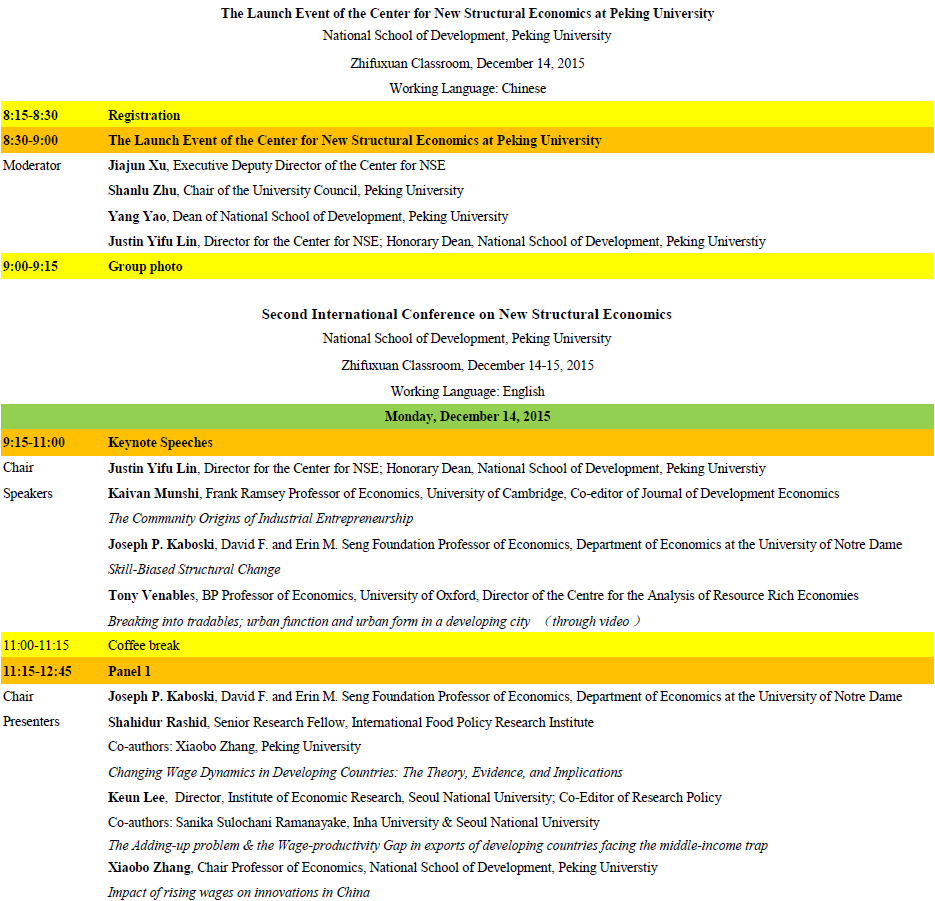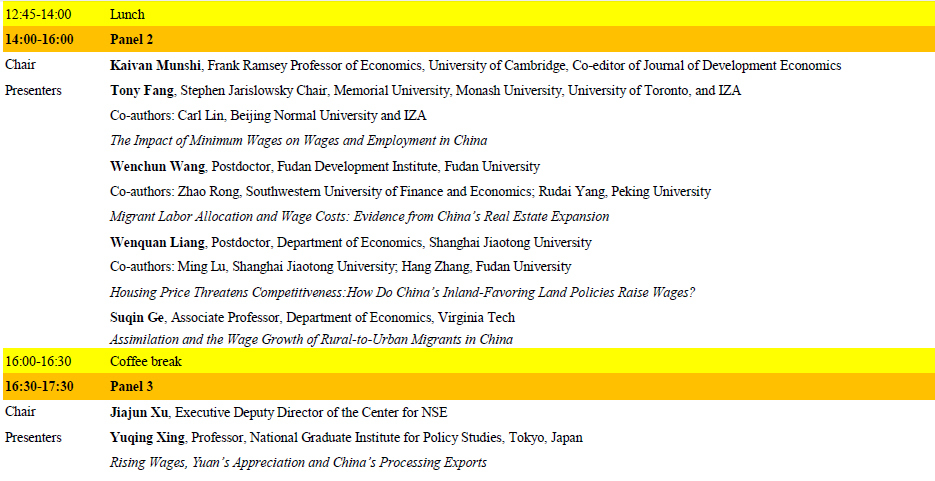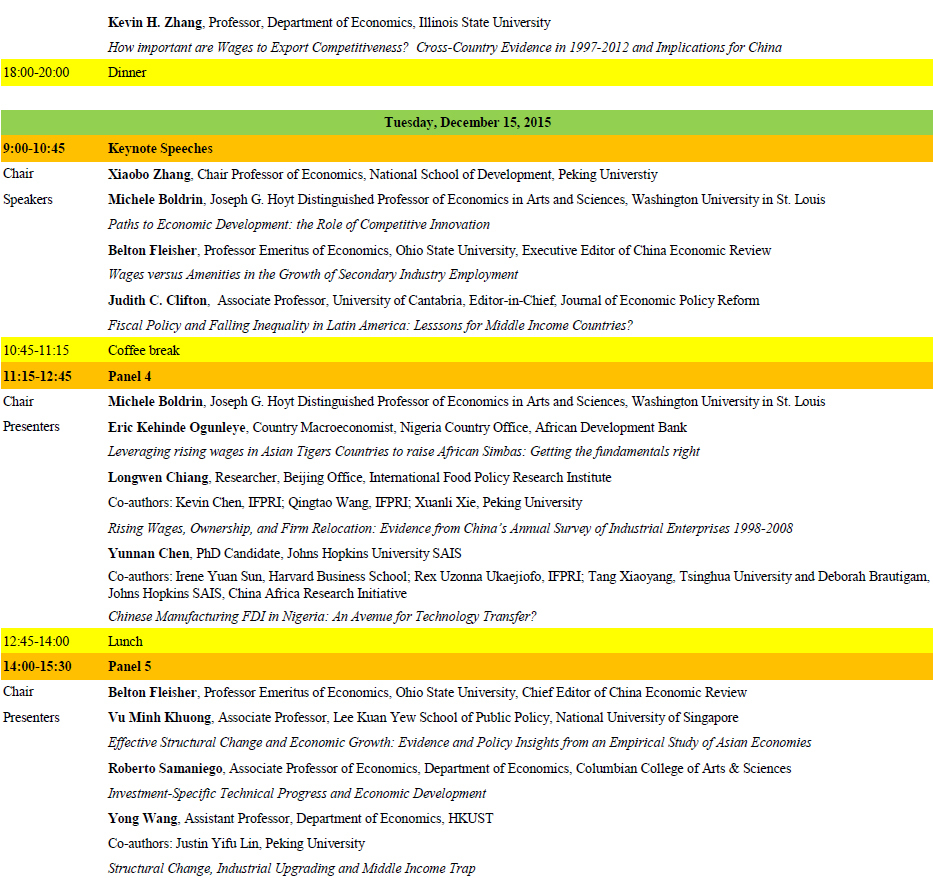-
首页
-
- 首页
- WORKSHOP预告
第二届新结构经济学国际会议:发展中国家工资上涨对经济转型的影响
发布日期:2015-12-14 10:34 来源:北京大学国家发展研究院
The Launch Event of the Center for New Structural Economics at Peking University and Second International Conference on New Structural Economics –
Rising Wages in Developing Countries: Implications for Economic Transformation
北京大学新结构经济学研究中心成立仪式暨
第二届新结构经济学国际会议-发展中国家工资上涨对经济转型的影响
Hosted by: Center for New Structural Economics, Peking University
主办:北京大学新结构经济学研究中心
Zhifuxuan Classroom, National School of Development, Peking University
北京大学国家发展研究院致福轩教室
December 14-15, 2015
2015年12月14日-15日
Real wages in China have been rising since the mid-2000s. This trend has sparked heated debates on whether this ‘world’s factory’ has approached a critical threshold beyond which the era of surplus labor is over (known as ‘the Lewis turning point’). Yet the poor quality of China’s labor statistics leaves the debate wide open. Similar debates have recently been reignited, as other parts of Asian countries such as Bangladesh and India witness rising rural wages at a faster rate than before. This brings to the fore the questions of (a) whether rising wages in China and other parts of developing countries would herald a new wave of relocating manufacturing jobs to less prosperous low-wage developing countries; and (b) if so, how these catching-up low-income countries can seize this opportunity to boost their manufacturing industries in an effort to achieve economic transformation.
The quest for answering the above questions is more urgent than ever before. The immense scale of China’s manufacturing is unprecedented. As China is losing its competitiveness in labor-intensive industries, it is estimated that about 85 million factory jobs could leave China in the coming years. China’s neighboring countries in Asia with low wages might be the first to benefit from this potentially accelerating trend. A further prospect is that companies might be moving to Africa in search of lower wages. Indeed, the first pioneer wave of relocated Chinese plants can be seen in Ethiopia, such as Huajian shoe factory. Optimists maintain that the unparalleled scale of relocated Chinese manufacturing could transform the African continent and other parts of the developing world, as a surging youth population is entering the labor market.
Yet economic transformation in low-wage developing countries will not come into fruition, unless right conditions are created. Relocating manufacturing jobs from China to other developing countries will not happen, unless roads, power supplies and ports are adequate. Relocation to low-wage developing countries is unlikely to happen, unless there is political stability. Without these and other facilitating factors, low-wage developing countries would lose the opportunity of industrial upgrading and economic transformation. Hence, realizing this great potential entails effective policy levers to put right conditions in place.
In order to explore the implications of rising wages for economic transformation in developing countries, the International Conference on New Structural Economics at Peking University welcomes submissions on the following topics:
What trends can be seen in wages in developing countries since the new millennium? How much is there a common pattern across different regions? What factors are driving the increases in wages seen? Above all, do they stem from increased production and productivity, from changing demography, or from urbanization and industrialization? To what extent do they reflect public policy such as minimum wages and public employment schemes? What may be expected in terms of trends in wages in developing countries over the next five to ten years? If wages in some developing countries such as China and India are rising, then is it likely that some plants in these countries will relocate to low-income countries in Asia, Sub-Saharan Africa, and other parts of the developing world? What are the implications for industrial upgrading, structural change, and economic transformation in catching-up processes of developing countries? What kinds of policy recommendations can be offered to help low-wage developing countries to seize this opportunity in order to achieve economic transformation?Online Registration: http://www.huodongshu.com/event/10024766/?is_easy=2




国家发展研究院官方微信
Copyright© 1994-2012 北京大学 国家发展研究院 版权所有, 京ICP备05065075号-1
保留所有权利,不经允许请勿挪用


